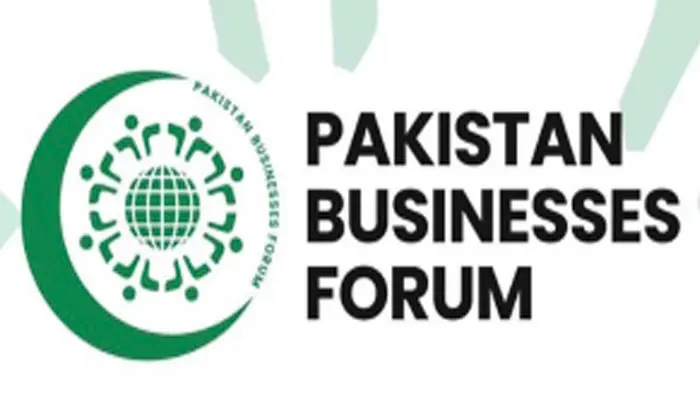Karachi: The Pakistan Business Forum (PBF) has urged the government to take swift and comprehensive measures for economic reform. The forum emphasized that these changes are crucial for achieving stability and long-term growth. Malik Khuda Baksh, President of PBF Karachi, highlighted the urgent need for steady economic management to steer Pakistan’s economy out of crisis.
Current Economic Challenges
At the recent PBF general body meeting, Khuda Baksh voiced his concerns about Pakistan’s struggling economy. He stressed that the nation’s future depends on critical structural reforms. These reforms would ideally enhance the Ease of Doing Business (EoDB) and attract foreign investment. However, he warned against excessive reliance on external borrowing, cautioning that it is not a sustainable way to achieve economic stability.
“The high cost of doing business is eroding the competitiveness of Pakistani industries,” Khuda Baksh explained. “This discourages investment and stifles growth. To counter this, we must revamp our regulatory environment, reduce taxes, and make energy tariffs more competitive.”
Khuda Baksh further pointed out that rising electricity prices under the fuel adjustment mechanism have increased production costs, harming trade and industry. The energy sector, he argued, has become a significant obstacle to economic progress. Urgent reform, especially in energy tariffs, is essential to support Pakistan’s industries.
The Mystery of Supermassive Black Holes in Galaxies
Short-Term Relief vs. Long-Term Stability
Khuda Baksh acknowledged that the government’s recent agreement with the International Monetary Fund (IMF) offers temporary relief. The 37-month loan program marks the 25th IMF intervention since 1958. While this deal provides some breathing room, Khuda Baksh insisted that true recovery depends on in-depth structural reforms. Without addressing root issues, such as the high debt burden and fiscal mismanagement, the economy will struggle to stabilize.
Economic experts agree that much more is needed to address Pakistan’s fiscal woes. As the nation faces debt repayments of $90 billion over the next three years, Khuda Baksh believes that continuous borrowing will not offer a sustainable solution. Instead, he called for fiscal discipline and a shift from reliance on foreign aid.
“Pakistan must reduce its dependency on external loans and rollovers,” Khuda Baksh warned. “Our focus should be on fiscal responsibility and reforms that create long-lasting stability.”
Pakistan’s Position as a Top IMF Debtor
With over $7 billion owed to the IMF as of September 25, 2024, Pakistan ranks as the organization’s fifth-largest debtor. Khuda Baksh raised concerns over this heavy debt load, which only adds to the nation’s economic challenges. He stressed the importance of reaching a political consensus on essential reforms, including tax policies, energy tariffs, and a market-driven currency.
“Political stability and a unified approach are vital if Pakistan is to achieve a lasting recovery,” he noted. “Only through collective effort can we bring about sustainable growth.”
Khuda Baksh’s comments reflect a growing demand for cohesive action to revitalize the economy. He emphasized that political unity and transparency in policy-making could improve investor confidence and stimulate economic recovery.
Urgent Reforms Needed in the Power Sector
Energy remains a central challenge for Pakistan’s economy. Khuda Baksh urged the Ministry of Power to tackle system constraints and improve transmission infrastructure. According to him, these measures could help reduce electricity shortages and lower consumer costs. He highlighted the need for Pakistan to adopt business-friendly energy policies, especially as regional competitors offer lower tariffs to boost industrial growth.
“Our current energy tariffs are among the highest in the region,” Khuda Baksh remarked. “Affordable electricity is crucial for reducing production costs and making our industries globally competitive.”
He called on the government to accelerate ongoing power projects and adopt policies that attract foreign investment. High energy costs, he argued, hinder industrial expansion and limit Pakistan’s potential to increase exports. The goal, he said, should be to build a more resilient power sector that can support economic growth without excessive reliance on foreign loans.
Foreign Borrowing and Its Impact on Economic Growth
Malik Khuda Baksh criticized the previous governments’ reliance on foreign borrowing to cover local expenditures, which has only deepened Pakistan’s debt. He pointed out that increased foreign debt restricts economic flexibility and burdens future generations. His remarks reflect a broadening consensus that Pakistan needs a sustainable economic model that reduces reliance on foreign funds.
By adopting prudent fiscal policies and strategic investments, Khuda Baksh argued, Pakistan could create a stronger, self-sufficient economy. He also emphasized that excessive borrowing erodes the nation’s economic sovereignty and weakens its bargaining power on the global stage.
Ease of Doing Business: A Priority for Attracting Investment
To encourage both local and foreign investors, Khuda Baksh highlighted the importance of improving Pakistan’s ranking on the Ease of Doing Business Index. He suggested that streamlining regulations, lowering taxes, and improving infrastructure would make Pakistan a more attractive business destination. Countries in the region have successfully used such strategies to boost their economies, and Pakistan could benefit from following similar policies.
“A favorable business environment will lead to high economic growth,” Khuda Baksh stated. “We must prioritize this to attract the investments that will power our future.”
Khuda Baksh emphasized that achieving this requires an efficient and transparent regulatory system. When businesses face fewer regulatory hurdles and lower costs, they are more likely to invest and expand, creating jobs and spurring growth. With an improved business environment, Pakistan could see a rise in foreign direct investment (FDI) and increased opportunities for local businesses.
Follow Day News on Google News, Instagram, YouTube, Facebook, Whats App, and TikTok for latest updates
